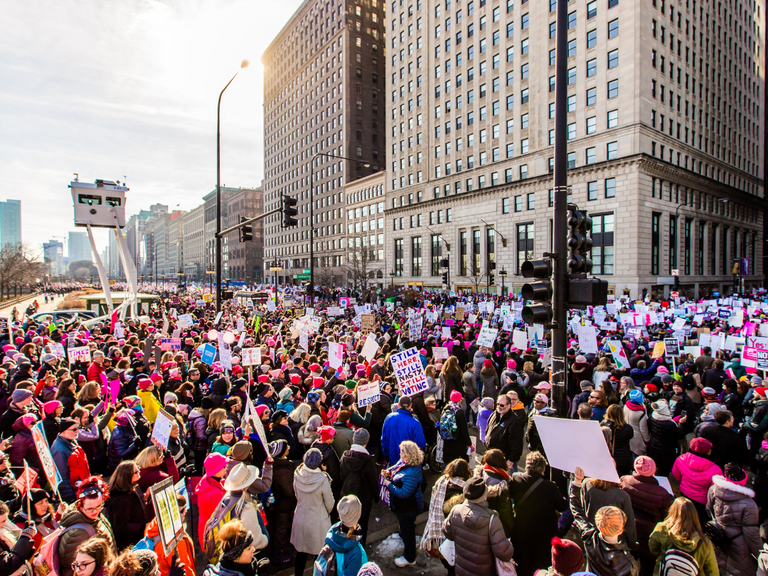GAAS PolSci Conference 2024: Authority and Trust in American Politics and Society
Project no.:
24-0606
Date:
Thursday, June, 6th– Saturday, 8th, 2024
Venue:
Heidelberg Center for American Studies, Heidelberg
Partner:
Heidelberg Center for American Studies (HCA)
Graduiertenkolleg Authority and Trust (GKAT)Heidelberg University
Organizers:
Natalie Rauscher, Maren Schäfer, Martin Thunert, Sarah Wagner & David Sirakov
Target group:
Political scientists, historians, sociologists as well as a larger interested audience
Participation fee:
Participation at the conference is free of any charges, both for presenters and for participants.
Registration:
tbd...
General Information (program, arrival, accommodation, travel grants, business meeting):
Description:
Due to its early democratization, its egalitarian and libertarian political culture, its ethno-cultural heterogeneity, and its international predominance, the U.S. is a particularly interesting case study of authority and trust in the modern world, especially in light of the recent political “crises” in many countries. Public opinion researchers diagnose a dramatic loss of authority and trust in central political institutions, social elites, and more traditional media and expert cultures. Possible structural causes include growing social inequality, sociocultural and spatial segregation, partisan polarization, and dwindling civic and governmental infrastructures in the wake of postindustrial globalization and an increasingly economic efficiency-oriented rationalization of urban planning and fiscal policy. The public’s confidence in the efficiency and fairness of the polity has been eroding in recent decades in the U.S. and elsewhere. An aggressive anti-establishment populism and proliferating conspiracy theories seem to resonate strongly with substantial parts of the American public, not only since the myth of voter fraud led to the storming of the Capitol on January 6, 2021. Recent movements such as Black Lives Matter and other public protests, e.g., in response to overturning Roe v. Wade, also manifest a deep mistrust of the state, its officials, and its institutions. The internal crisis of authority and trust is consequential for the U.S.'s position as a global power, as the international community has viewed the country's ability to fulfill its traditional global leadership role with increasing skepticism.
But authority and trust do not simply disappear. Locations, sources, actors, and functions of trust and authority are permanently changing and shifting, both in the domestic and international sphere. The question of what the underlying mechanisms and processes of the emergence and transformation of authority and trust from a broader perspective as well as from in-depth analyses (‘deep-dives’) are therefore forms the common research interest of this conference.
Program
Thursday, June 6, 2024
06:00 pm
Welcome and Opening Keynote Address in cooperation with the Graduiertenkolleg “Authority and Trust” (GKAT)
On the Democratic Duty to Trust the People
Roberto Frega, French National Scientific Research Center (CNRS)
Friday, June 7, 2024
9:00 – 10:30 am
Panel 1: Authority and Trust in American Media and the Digital Sphere
Chair: Sarah Wagner, M.A., Atlantic Academy RLP
- Mike Cowburn (Europa Universität Viadrina, Frankfurt (Oder)) – Blasting the Elephant: Reconceptualizing Right-Wing “Alternative News” as Republican “Digital Surrogates”
- Matt Sheedy (University of Bonn) – Remixed Spiritualties and the Gurus who Shape Them: On the Authority of Popular Digital Influencers
- Caroline Leicht (University of Southampton) – #WomenWin - How Gendered Representations of Candidates in Political Satire Affect Public Discourse during US Presidential Elections
- Christoph Rosa (Free University Berlin) – Partisan ship and news media consumption as moderators of the COVID 19 pandemic’s impact on mental health in America
11:00 am – 12:15 pm
Panel 2: Authority and Trust in the Supreme Court and Justice System
Chair: David Sirakov, Atlantic Academy RLP
- Sebastian Dregger (University of Eichstätt-Ingolstadt) – The US Supreme Court as Guardian of the Constitution – Losing „Authority“ (as understood by Hannah Arendt)?
- Sofie Sabbioni (University of Basel) – “Fuck the government and the corrupt justice system”: Distrust and Rejection of State Authority in U.S. American Far-Right Fiction
- Manfred Berg (Heidelberg University) – Gun Rights and Polarization
12:15 – 01:30 pm
Lunch at HCA
01:30 – 03:00 pm
Panel 3: American Authority in the World
Chair: Michael Dreyer, University of Jena
- Marcus Dietrich (Heidelberg University) – In the Dollar we (must) trust? A socialist perspective on the emergence of international finance
- Jan Hornat (Charles University Prague) – State responsibilization and the reproduction of the liberal international order: the US and the appeals of status recognition
- Eva Rieger (University of Passau) – Bigotry, bombs, and burkas – Contestations of feminism in US foreign policy
- Richard Lange (Heidelberg University) – How Distrust in Europe Changed American Global Authority - Anti-Europeanism and EU-criticism in United States Foreign Policy after the Cold War
03:30 – 05:00 pm
Panel 4: Domestic Division, Foreign Policy Volatility, and International Trust of U.S. Global Authority
Chairs: Florian Böller, RPTU Kaiserslauzern / Gordon Friedrichs, MPIL Heidelberg
- Julia Simon (University of Bremen) – Fighting off the UNESCO conspiracy yet again: How radical right activists reconfigure ‘the international’ as an existential threat to the United States
- Hubert Zimmermann (University of Marburg) – Ending the Forever Wars Discourse Coalitions in U.S. Debates on Military Intervention Abroad
- Jakob Wiedekind (Leibniz Universität Hannover) – Shifting Tides: Patterns of Lawmaking in US Foreign Policy
- Gordon Friedrichs (MPIL Heidelberg), Florian Böller (RPTU Kaiserslautern-Landau) – Does Anybody Care? Grasping the Effect of Domestic Polarization on U.S. International Relations
05:30 – 07:00 pm
Keynote II: title tba
Ulrike Klinger, Europa Universität Viadrina, Frankfurt (Oder)/Slubice
07:30 pm
Conference dinner (optional, self-payer basis)
Saturday, June 8, 2024
09:00 – 9:45 am
DGfA Business Meeting
10:00 am – 11:30 pm
Panel 5: The Role of Authority and Trust in Elections, Conservatism, and Radicalization
Chair: Martin Thunert, HCA
- Philipp Adorf (University of Bonn) – The Party of the Working Class or the Party of White Nationalism? The Composition of the GOP in the Trump Era
- Zoe Krueger Weisel (Eurac Bozen) – Conservatives and science: Understanding U.S. conservatives’ growing distrust in science
- Grit Grigoleit-Richter (University of Passau) – The Racial Trust Gap
11:45 pm – 01:15 pm
Panel 6: Democracy and the Question of Scale
Chair: tbd
- Dirk Jörke (TU Darmstadt) – The Federalism of the Anti-Federalists
- Ewa Atanassow (Bard College, Berlin) – Tocqueville's dilemmas, and ours
- Laura Kettel (Aarhus University) – State Level Incentives in Housing Policy
- Boris Vormann (Bard College, Berlin), Christian Lammert (Free University Berlin) – Authority, Legitimacy, and Scale
01:15 pm
Concluding Remarks
1:30 pm
Light Lunch and End of Conference








